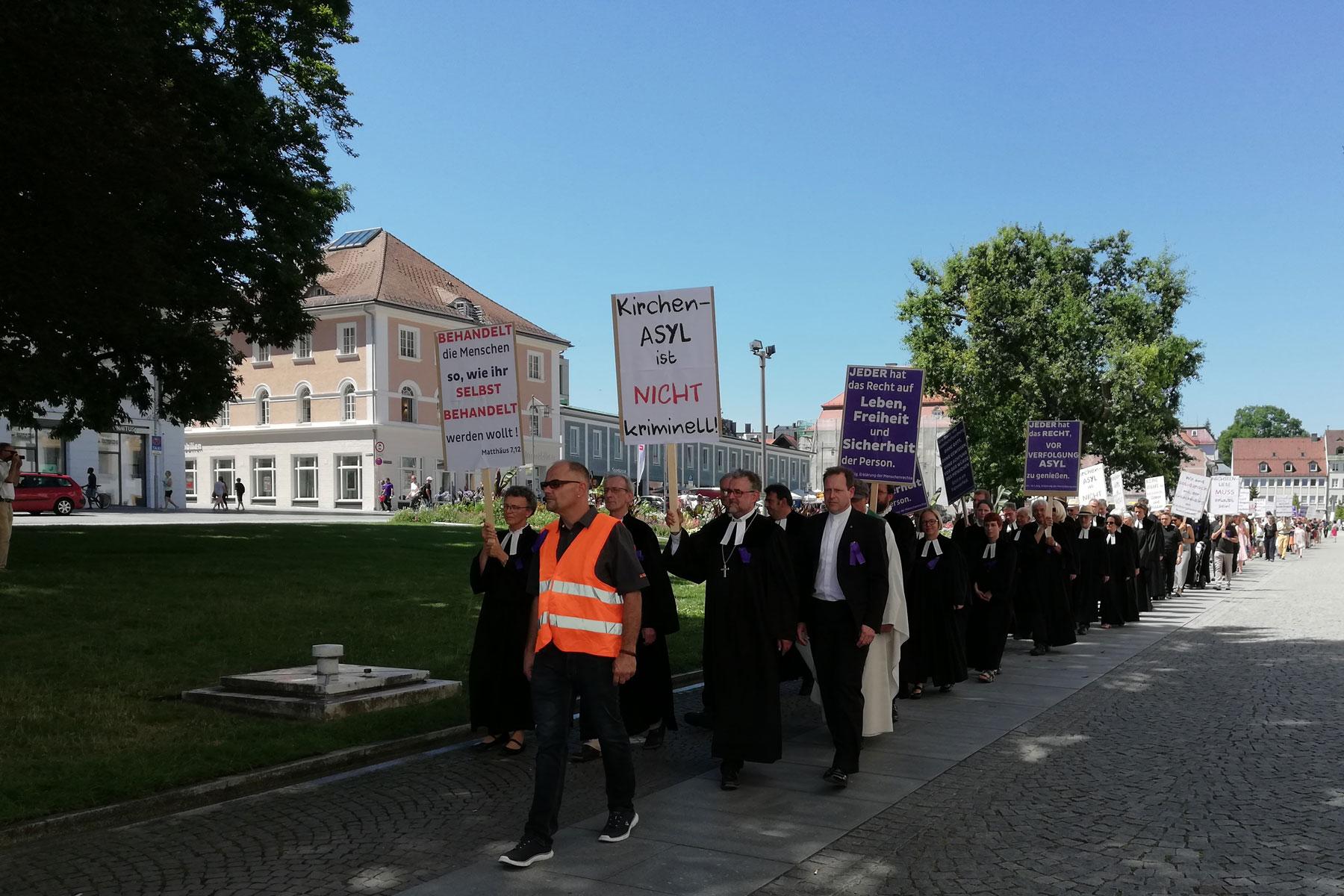Church asylum: When solidarity is criminalized

Around 400 people, including 50 pastors, participated in a silent march in support of Rev. Ulrich Gampert who has been fined for providing church asylum to a young Afghan refugee. Photo: Dekanat Kempten/Jutta Martin
Penalty order issued against Bavarian pastor
(LWI) - For the first time a pastor of the Evangelical Lutheran Church in Bavaria from Immenstadt, Germany, has been ordered to pay a penalty for granting church asylum to a rejected Afghan asylum seeker. Rev. Ulrich Gampert is to pay a fine of EUR 4,000 for "aiding and abetting illegal residence". Supporters in the church district of Kempten to which his parish belongs, organized a silent march to take a stand against this development.
The problem is not the high fine, but that a decision of conscience for humanitarian reasons is punished at all, even though there was full cooperation with all the authorities involved.
The organizers had expected 100 participants for this initiative. Instead, 400 turned up to show their solidarity with Gampert and the Immenstadt congregation, including about 50 pastors who took part in the silent march in their clerical gowns. Dean Jörg Dittmar sees the authorities’ action as questioning of the church asylum as such: "The problem is not the high fine, but that a decision of conscience for humanitarian reasons is punished at all, even though there was full cooperation with all the authorities involved."
Church asylum strives to utilize all legal possibilities
In the German context, church asylum is the temporary admission of refugees by a parish to avert deportation, when parishioners regard this deportation as causing bodily harm and threatening the lives of those seeking protection. In principle, its purpose is to reopen or re-examine the asylum or aliens’ procedure or to conduct a hardship investigation by the state authorities responsible for the case.
There is a clearly defined reporting chain as soon as a person is taken into church asylum. Police, district offices, local authorities, the dean's office, church administration, foreigners’ authority – all know where the asylum seeker is staying. The Bavarian Lutheran church currently has 33 people under this type of asylum, a relatively small number. Dittmar explains: "Whether a congregation takes in someone is always an individual consideration for concrete persons and for a concrete reason – it is a question of conscience."
"The church asylum does not represent a danger for our legal system," he continues. "But of course it is not the solution for the refugee and asylum issue either." Ideally it would be superfluous, but in numerous cases it serves the purpose to have humanitarian aspects and cases of hardship re-examined. All a church asylum does is to provide the time required to go through the procedure.
Church asylum under pressure
The church dean has a clear position on the legal action against Gampert: "This is not acceptable. I am horrified that solidarity is being criminalised in such a way." For more than a year, Gampert and his wife Marlies, also a pastor, have been offering refuge to a 22-year-old Afghan in the Immenstadt Church of the Redeemer. His family left Afghanistan when he was four years old. Although he speaks German well, is integrated and has an apprenticeship offer, he is due to be deported to Afghanistan.
Gampert himself wants to lodge an appeal against the penalty order with the support of his church and legal assistance. It may be an important step "to clarify in court whether church asylum is a criminal offence or not – also for the other congregations which grant protection to the persecuted," said the 64-year-old. He also has the backing of his Bishop: "Pastor Gampert has my full solidarity," says Heinich Bedford-Strohm.





